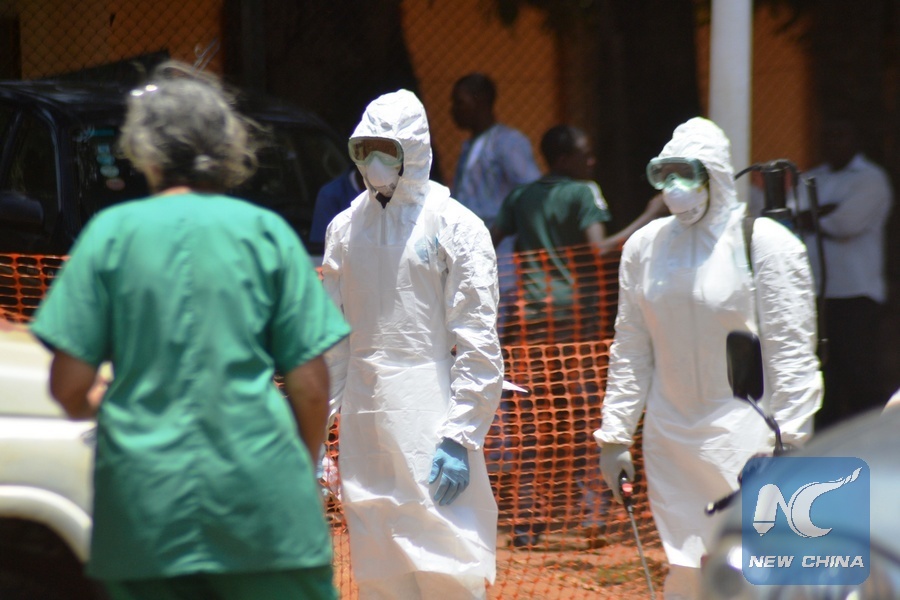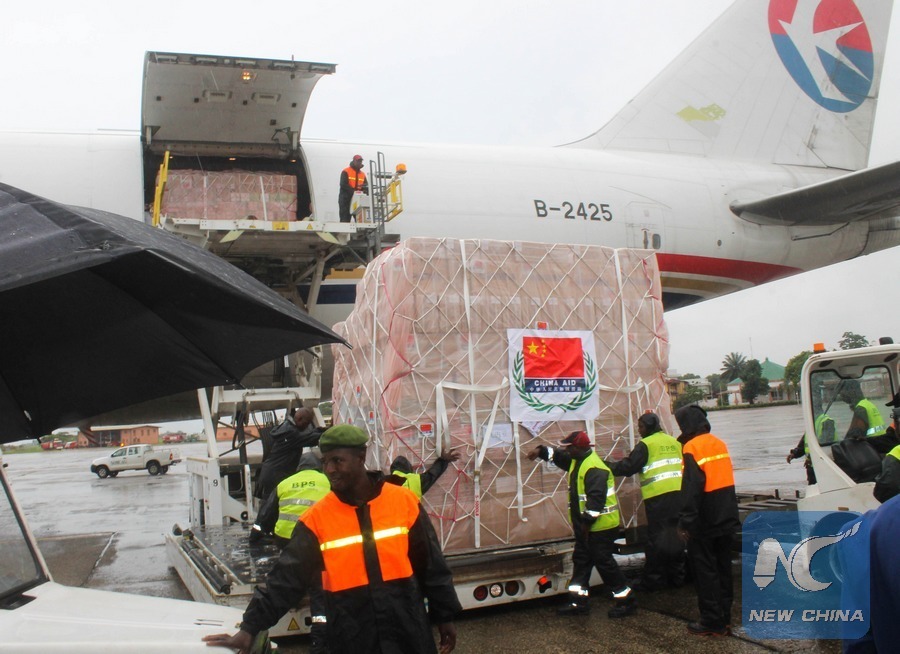
Medical personnel work at the Donka hospital in Conakry, capital of Guinea, March 31, 2014. The Guinea government has confirmed at least 78 deaths out of 122 cases reported in the country due to an Ebola hemorrhagic epidermic that broke out in the south of Guinea since February 2014. (Xinhua/Cellou Binani)
CONAKRY, June 11 (Xinhua) -- Guinea's health authorities have stepped up preventive strategies as well as measures to handle any potential Ebola outbreak following last week's declaration of the end of Ebola epidemic in the country by a representative of the World Health Organization (WHO).
Since the outbreak of the Ebola epidemic in March 2014 in Guinea's southern region of Guekedou, some 800 km from Conakry, a total of 3,358 cases that resulted in 2,088 deaths, equivalent to 62 percent of death rate, were reported in the country.
Among the health workers who were fighting Ebola, 211 cases were reported, with 115 deaths.
Thanks to support from health partners such as WHO, Doctors Without Borders (MSF), China Red Cross, CDC Atlanta, as well as assistance from Guinea's friendly countries, the authorities managed to end the Ebola outbreak by using a network of health centers spread in various parts of the country.
The Ebola community treatment centers and the transit centers that were set up in Guinea's 33 prefectures at the height of the epidemic, helped to halt the spread of the disease.
At a time when Ebola fever was killing tens of people per day in Guinea, the government and its partners decided to set up ten Ebola treatment centers to provide emergency health services.
According to the latest data from Guinea's national council for fighting against Ebola, at least 2,788 Ebola patients were received at the centers and among them, 1,270 were cured of the disease.

Local workers unload the Ebola relief supplies provided by China from a chartered plane at the airport in Conakry, capital of Guinea, Aug. 11, 2014. A Chinese plane carrying emergency humanitarian supplies to Guinea, Sierra Leone and Liberia landed here on Monday to help the three West African countries fight against an outbreak of Ebola epidemic. The supplies worth 30 million yuan (4.9 million U.S. dollars) include medical protective clothes, disinfectants, thermo-detectors and medicines. (Xinhua/Youssouf Bah)
Speaking to Xinhua on Wednesday, Moumie Barry who is in charge of the prevention unit in the national council for fighting against Ebola, said a total of 1,226 health professionals were mobilized to work in the Ebola treatment centers.
After the first declaration of the end of Ebola in Guinea in December 2015, actors on the ground immediately began transforming the Ebola treatment centers into centers for treatment of potential infectious diseases. They were expected to not only treat Ebola, but also other infectious diseases such as measles, cholera and meningitis.
In the prevention plan for diseases with potential epidemic levels like Ebola, the Ebola treatment center in Nongo, a Conakry suburb, will be transformed into a virtual and high class treatment center.
At this time when Ebola has been declared over in Guinea, many Guinean health professionals hope that "the dark period of the epidemic has been transformed into an opportunity."
"It is true that Ebola led to many deaths, but it is also true that the epidemic was an opportunity for us to improve our health system," Barry said, adding that Guinea managed to fight the epidemic and will be able to share its experience in the fight against Ebola with other countries.
To prevent a fresh outbreak of Ebola virus, Guinea's health authorities are urging the population to remain vigilant, especially when handling dead bodies and to continue following recommended hygiene practices.

